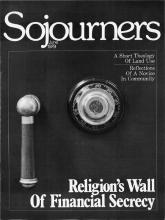In 1979 the United Nations was sponsoring a World Conference on Agrarian Reform and Rural Development (WCARRD). The purpose of this Rome-based conference was, according to the Food and Agriculture Organization, "the transformation of the rural areas of the world from backwardness and poverty into healthy environments capable of contributing fully to national progress." Conferences of this kind have been long on words and short on concrete suggestions for overcoming the structures which keep the poor in bondage to hunger and oppression.
The problem, in part, is that few countries want their internal problems or injustices to be the focus of international attention. It is hard to imagine a representative of the Philippines martial law government going to Rome with a position paper critical of that government's land reform policies. The fact that land reform has actually forced hundreds of thousands of peasants off the land, while providing incentives to large landowners and foreign agribusiness corporations such as Del Monte and Castle and Cooke (Dole), will not be discussed at the conference. Closer to home, representatives from AID and the State Department have made it clear that the structural problems leading to the demise of black farmers in the South, or of the family farm system in general, are not on the U.S. agenda.
If we measure the importance of WCARRD only by what happened in Rome we will likely be disappointed. The significance of WCARRD is that it presents people of faith with the opportunity to reflect upon the spiritual, social, and economic significance of land and land use. It is an occasion for remembering.
Land and Justice
Read the Full Article

